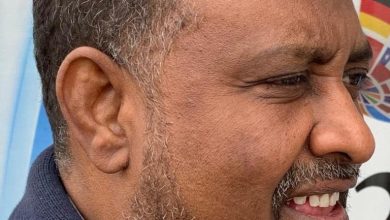What Turmoil in Ecowas Means for Nigeria and Regional Stability (6-9)

Nnamdi Obasi
Senior Adviser, Nigeria
On at least two of these occasions, he apparently visited France for medical care, though no official explanation was offered. Officials at Nigeria’s foreign ministry say Nigerian-French relations have grown stronger under Tinubu’s administration, but there is no evidence of a shift in foreign partnership from Nigeria’s traditional friends in the U.S. and Britain toward France. (Nigeria’s foreign policy elite are generally wary of France, due to its support of the secessionist Biafra in the late 1960s, its opposition to formation of ECOWAS in the 1970s and its continuing hegemonic influence over its former colonies in West Africa.) Yet Tinubu’s repeated visits to Paris, and official silence about the purpose of some of the trips, have helped create the impression that he is taking instructions from France.
Tinubu’s miscalculation in responding to the Niger coup may not have cost him much domestic support, since foreign policy is not a major issue for the citizenry, but it has certainly earned him no praise. On one hand, in northern Nigeria, many analysts attribute his initial hard line on the Niger coup to his not reaching out to knowledgeable northern leaders who would have offered him better guidance. On the other hand, in the south, analysts say ECOWAS’s inability to follow through on its early threat of military intervention has made Tinubu (as the bloc’s current leader) appear weak. Worse still, beyond Nigeria, Tinubu’s failure to act has sent a signal that he and ECOWAS can bark but not bite. Some worry that the perception of an enfeebled ECOWAS under Nigeria’s leadership could embolden military adventurers in other West African countries as well as the Russia-backed Africa Corps, the successor to the notorious Wagner Group mercenaries in the region.
The tumult in ECOWAS is, at least in part, a reflection of Nigeria’s diminished influence in West Africa. Nigeria’s influence has been slipping for over a decade, as the country has grappled with the security challenges and economic malaise that emerged under the presidencies of Umaru Yar’Adua and Goodluck Jonathan (2007-2015) but were significantly aggravated during the eight years of Muhammadu Buhari’s lethargic presidency (2015-2023).
Buhari’s government struggled on multiple axes. It was unable to lay out, and rally the bloc to, a strategic vision for regional development and security, being preoccupied with, if not overwhelmed by, several domestic security challenges, including the jihadist insurgency in the North East, banditry in the North West, herder-farmer tensions, especially in the North Central zone, and deepening insecurity associated with the Biafra secessionist agitation in the South East.
Embattled at home, Nigeria also sometimes pursued its own priorities with apparently scant regard for collective interests. It only reluctantly conceded to working with ECOWAS members Niger and Benin, along with Cameroon and Chad, in forming the MNJTF to deal with the jihadist group, Boko Haram. From August 2019 to December 2020, it closed its land borders with neighbours – Chad, Cameroon, Benin and Niger – in a bid to curb smuggling of produce, firearms and refined petroleum products.


